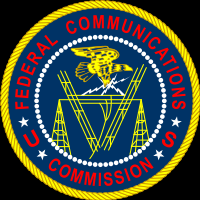
In a unanimous decision, a three-judge panel from the US Court of Appeals for the District of Columbia Circuit yesterday rejected key provisions of the Federal Communications Commission's (FCC) open Internet policy, otherwise known as the network neutrality rules which require that broadband service providers treat all network traffic equally. The decision now opens the way for mobile and broadband service providers to faster network access speeds for content providers at an additional cost and to be able to block content or applications that do not or cannot pay.
The case came before the court via an appeal brought by telecom provider Verizon challenging the FCC's rule. The court agreed with Verizon's central argument and found that while the FCC has the authority to regulate broadband access, it failed to prove that it has the power to impose anti-discrimination rules on broadband service providers.
Consumer protection and open Internet advocates argued that the decision would hurt network neutrality by allowing Verizon and other broadband providers the ability to split their services. Content providers that can pay will get superior service with faster speeds while those that can't pay as much will have poor service with slower speeds. According to one advocate, the decision on who gets what type of service will be purely based on who can pay the most.
Verizon on the other hand said that the decision would spark innovation while retaining the same abilities that consumers had to access Internet content as they currently do. Verizon also stated that it remains committed to an open and competitive Internet.
This is the second time that the court has ruled against the FCC on network neutrality. The first time was in 2010 when broadband service provider Comcast challenged an FCC order that it treats all content equally. As in this case, the court then found that the FCC lacked the authority to require broadband providers to treat all content equally. The FCC then drafted the network neutrality policy that Verizon recently challenged.
The FCC can now ask the case to be reheard before the same three-judge panel or before the full en banc panel. In addition, the FCC could bypass a rehearing at the appeals court level and petition for a hearing before the United States Supreme Court. The FCC could also alternatively reclassify broadband operators from information service providers to traditional phone companies, which would allow the commission to gain the needed oversight authority to require broadband providers to adhere to network neutrality rules.



























